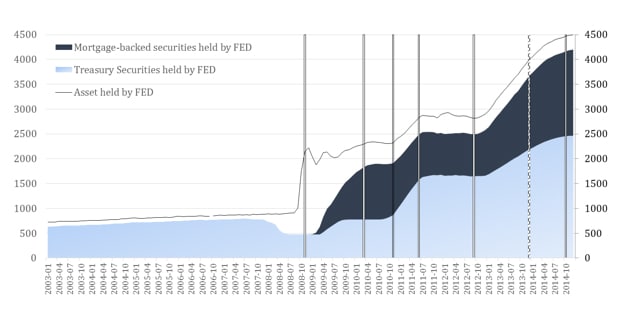When Unconventional Monetary Policy Becomes Conventional
One of the most significant new developments in the global post-global financial crisis (GFC) economy is the enormous asset purchase programs implemented by central banks in the industrial world to stimulate their economies. Widely known as quantitative easing (QE) programs, their impact has been substantial.






